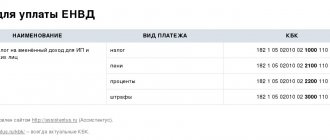How to receive goods without documents step by step
In the company's activities, situations are possible when goods arrive at the company's warehouse without accompanying documents from the supplier. Such a delivery is called uninvoiced. Our legislation treats such cases differently.
On the one hand, clause 1 of Art. 9 of the Law “On Accounting” dated December 6, 2011 No. 402-FZ states that every fact of economic life must be substantiated by a document. And if the primary document is missing, then the accountant will not be able to capitalize the goods and reflect the transaction on the accounting accounts.
At the same time, the norms of Art. 223 of the Civil Code of the Russian Federation is that the transfer of ownership of property occurs at the time of its actual transfer to the buyer (unless another method is specified in the contract). That is, the accountant will still have to reflect the moment of transfer of ownership of the goods in the accounting records, even if there are no documents for it. In this case, transfer is considered to be the direct delivery of inventory items to the customer (buyer).
If a company received goods from a supplier without accompanying documentation, and the contract does not stipulate a special procedure for the transfer of ownership rights to it, then such goods become the property of the enterprise and must be reflected in the balance sheet asset.
In this case, the accountant will be faced with the question: “What document is needed to formalize such a delivery?”
For this purpose, you can use the unified goods acceptance certificate in the TORG-4 form.
You can download the TORG-4 act on our website - see the material “Unified form No. TORG-4 - form and sample”.
The act is drawn up and signed by a specially appointed commission, which must accept the goods by weight, quantity, and also check them for safety and integrity. It is highly desirable that a supplier representative be present on this commission.
The document is drawn up in at least 2 copies: one is given to the accountant, the second remains with the financially responsible person, for example a storekeeper. Another copy of the act should be sent to the supplier.
Purchase from the public
The primary document confirming the purchase of goods from the population is the act. If agricultural products are purchased, then you can use form No. OP-5. When accepting scrap metal from the population, the organization is obliged to draw up an acceptance certificate in the form approved by Decree of the Government of the Russian Federation of May 11, 2001 No. 369. In other cases, draw up a report in any form with the required details (clause 2 of Article 9 of the Law of December 6 2011 No. 402-FZ).
When purchasing agricultural products, attach to the purchase act:
a certificate of ownership of the seller for these products (this can be obtained from the local administration or from the board of the dacha cooperative);
veterinary inspection conclusion on the good quality of these products.
Such rules are established in paragraphs 7.3 and 7.6 of the Methodological Recommendations, approved by letter of the RF Committee on Trade dated July 10, 1996 No. 1-794/32-5.
Accounting records for goods receipt
We figured out how to receive goods without documents. After receiving the goods acceptance certificate, the accountant must reflect it in accounting. Let's look at how this is done in practice.
Example:
LLC "Zagadka" entered into an agreement with LLC "Lesnoy Dom" for the supply of goods. The contract stipulates the transfer of rights at the time of its actual transfer to the buyer. On March 18, 2021, goods without accompanying documentation arrived at the warehouse of Riddle LLC. Appendix No. 1 to the contract (specification) sets the cost of the goods at 28,000 rubles, including VAT at 4,271.19 rubles. Documents for this delivery were received from Lesnoy Dom LLC on April 10, 2021. At this time, the product was not sold. By agreement of the parties, the cost of the goods was increased by 1,000 rubles, including VAT of 152.54 rubles. On April 11, 2016, the goods received were paid from the current account.
On March 18, 2021, the accountant of Zagadka LLC must make the following entries in the accounts:
Dt 41 Kt 60 - goods were received from Lesnoy Dom LLC in the amount of RUB 23,728.81.
Dt 19 Kt 60 - VAT reflected in the amount of RUB 4,271.19.
Accounting entries April 10, 2021:
Dt 41 Kt 60 - the cost of the goods according to the documents of Lesnoy Dom LLC was clarified in the amount of 847.46 rubles.
Dt 19 Kt 60 - reflected VAT in the amount of 152.54 rubles.
Dt 68 Kt 19 - accepted for deduction of VAT in the amount of 4,423.73 rubles (4,271.19 rubles + 152.54 rubles).
Accounting entries April 11, 2021:
Dt 60 Kt 51 - goods received were paid from the current account in the amount of RUB 29,000.00.
Note that if the documents from the supplier were received after the sale of the goods (or not in the year of their receipt), the cost of delivery can be adjusted through invoice 91.
Find out how to account for input VAT from our material “How is VAT accounted for purchased assets?”
If the contract does not establish the cost of the purchased goods, then the received inventory items can be taken into account at market prices. And after payment documents are received from the supplier, it is necessary to make adjustments in accounting.
Goods received: do I need to evaluate them?
The rules for tax accounting of uninvoiced supplies are different for two possible situations.
The first situation: the supplier has delayed the documents, but sooner or later they will be received. In this case, there is no need to evaluate the uninvoiced property at the moment when it arrived at the buyer’s warehouse. The reason is this.
The company can manufacture products from unfinished materials and sell them. Goods received without documents may also be sold. In such cases, the accountant will have to show income from sales in tax accounting. But the cost of materials or goods for which there are no settlement and shipping documents cannot be written off as a reduction in taxable profit. After all, for tax purposes, any expense must be documented (Article 252 of the Tax Code of the Russian Federation). The company’s internal papers, even if compiled according to the forms of the State Statistics Committee of Russia, unfortunately do not confirm the costs.
As a result, the cost of production written off as expenses will be formed without taking into account the purchase price of materials. And when selling goods, expenses cannot include their purchase price.
The second situation: the supplier refuses to provide documents and does not demand payment for an uninvoiced delivery. In particular, this often happens when purchasing timber or lumber. Errors in measurements lead to the fact that instead of, say, 10,000 cubic meters of timber, the buyer receives 10,100. The documents received from the supplier indicate the agreed quantity - 10,000 cubic meters. In this case, the surplus of 100 cubic meters (10,100 - 10,000) for the buyer is property received free of charge. Its market value should be included in taxable income (clause 8 of Article 250 of the Tax Code of the Russian Federation). In relation to the case under consideration, the market price can be taken as the cost of the same goods, which is indicated in the supplier’s invoice.
Note. If documents for the goods are never received, it is considered received free of charge
Popova Elena Yurievna, State Advisor of the Tax Service of the Russian Federation, 1st rank
According to Art. 466 of the Civil Code of the Russian Federation, the buyer who has received goods in quantities exceeding that specified in the contract is obliged to notify the seller about this. If, after the buyer’s notification, the seller does not dispose of the relevant part of the goods within a reasonable time, the buyer has the right to accept the entire goods. Thus, if the supplier, notified by the buyer of the surplus, say, within a month (this period can be considered reasonable), did not send accompanying documents and did not demand additional payment, the buyer can recognize the values received in excess of the contract as his property. Since there is no need to pay for the excess, it will be considered free property for the buyer. According to paragraph 8 of Art. 250 of the Tax Code of the Russian Federation, the market price of such property should be included in non-operating income.
Introductory part of the act
After the name of the document and its number in the middle of the sheet there are sequential columns in which, when filling out, indicate:
- Name of the compiler's organization.
- Name of the customer organization.
- Contractor company name.
- Name of the appraisal organization or several. Only those who were directly involved in the process of assessing material assets obtained during disassembly are indicated.
Separately on the right in the attached form of the act there is a small table. It already contains the OKUD form number. If at least one column in the act is changed, then this number will need to be removed. This requirement is related to the rules for the use of unified forms of documentation.
In addition to the OKUD code, the attached act has columns for indicating OKPO. In the smaller of the three tables, it is also necessary to fill in the columns: “Date of compilation”, “Operation type code”, “Name of the structural unit” and “Type of activity”. Not all of them are required to be filled out. For example, if there are no structural divisions in the organization, then the entire corresponding column can be left blank. This is not forbidden.
Accounting Terminology
The term “uninvoiced delivery” is not mentioned in the “high rank” accounting documents. The possibility of such situations arising is mentioned in passing in the Instructions for using the Chart of Accounts (Order of the Ministry of Finance of Russia dated October 31, 2000 No. 94n). In a later document, Methodological guidelines for accounting of inventories (Order of the Ministry of Finance of Russia dated December 28, 2001 No. 119n), the financial department clarified the term “uninvoiced supplies”, devoting a separate chapter to the problem. And since no other documents regulating these issues have been approved, we will take into account the definitions of these documents.









